Contents
A New Hope for Romanian Families - Stem Cell Therapy for Autism
Every parent wants the best for their child. If you have a child with autism, you know the struggles—the difficulty in communication, the emotional ups and downs, and the constant search for something that could help them live a happier, more connected life.
What if there was a treatment that could give your child a better chance at expressing themselves, understanding the world, and building relationships? Stem cell therapy is giving families new hope. Many parents have already seen positive changes in their children improved speech, better focus, and more social interactions.
We know how much you want to help your child. You are not alone in this journey. Let’s explore together if stem cell therapy could be the breakthrough you’ve been waiting for.
Is My Child Eligible for Stem Cell Therapy for Autism?
Affordable Stem Cell Therapy for Autism Packages for Romanian Patients
For many Romanian families, the cost of stem cell therapy for autism is a major concern. In Western Europe and the U.S., prices range from €30,000 to €50,000, making treatment out of reach for many.
However, top medical centers abroad offer the same advanced therapy at lower costs, with packages starting from €7,000 to €15,000. These often include treatment, doctor consultations, and accommodation, making it more affordable without sacrificing quality.
Many families are now choosing trusted stem cell clinics in Mexico, Turkey, and Slovakia, where they receive world-class care at a fraction of the price. Explore your options today and find the best treatment within your budget!
`Stem Cell Therapy Prices – Find the Best Option for Your Child
As a parent, you dream of giving your child the best chance to grow, learn, and connect with the world. If your child has autism, you know the struggles the moments of silence, the frustration, and the deep wish to see them express themselves more freely. Now, there’s a new hope.
Our stem cell therapy packages for Autism are designed specifically for Romanian families looking for a breakthrough in autism treatment. These packages include expert medical care, advanced therapy sessions and full support throughout your journey. Families who have taken this step have seen incredible progress improved speech, better focus, and stronger emotional connections.
Stem Cell Treatment for Autism Centers Cost Comparison in Europe
| Provider | Procedure | Price |
|---|---|---|
| Fizikon Medical Center | Stem Cell Treatment for Autism, Stem Cell Therapy | $6000 |
| CellCenter - Stem Cell Therapy in Bratislava and Malacky, Slovakia | Stem Cell Treatment for Autism, Stem Cell Therapy | $5300 |
Stem Cell Treatment for Autism Cost Comparison in Europe
| Country | Procedure | Price |
|---|---|---|
| United States | Stem Cell Treatment for Autism, Stem Cell Therapy | $25000 |
| Turkey | Stem Cell Treatment for Autism, Stem Cell Therapy | $7000 |
Trusted Clinics for Romanians Seeking Advanced Stem Cell Treatment
Finding the right treatment for autism is not easy, but Romanian families now have access to trusted medical centers abroad offering advanced stem cell therapy. These internationally accredited clinics provide safe, high-quality care with expert doctors who specialize in autism treatment. Many families have already taken this step and seen positive results. Could this be the right path for your child? Explore your options and start your journey today!
Stem Cell Therapy Reviews – What Parents Are Saying
Choosing stem cell therapy for autism is a big decision, and hearing from other families can help. Many Romanian parents who traveled abroad for treatment have shared inspiring success stories—improvements in speech, focus, and social interaction.
Their experiences highlight the life-changing potential of stem cell therapy, giving hope to families looking for real solutions. Read their reviews and discover how this treatment could help your child too!
Common Questions About Autism Stem Cell Treatment
What is stem cell therapy for autism?
Stem cell therapy is an advanced treatment that uses stem cells to repair and regenerate damaged brain cells, potentially improving speech, behavior, and social skills in children with autism.
Is stem cell therapy safe for children with autism?
Yes, when performed by experienced doctors in accredited clinics, stem cell therapy is considered safe. However, like any treatment, it is important to discuss potential risks with medical professionals.
How much does stem cell therapy for autism cost?
The cost varies by country and clinic. In Western Europe and the U.S., prices range from €30,000 to €50,000, while high-quality treatment abroad starts from €7,000 to €15,000.
Where can Romanian families get stem cell therapy for autism?
Many families choose clinics in Mexico, Turkey, and Slovakia, where they receive world-class care at more affordable prices.
How soon can we see results after treatment?
Results vary for each child, but some parents notice improvements within a few weeks, while others see changes over several months. Common improvements include better focus, speech, and social interactions.
Does stem cell therapy cure autism?
There is no cure for autism, but stem cell therapy aims to improve symptoms and enhance a child’s quality of life by promoting brain cell repair.
How do I know if my child is a good candidate for treatment?
Eligibility depends on your child’s health and medical history. A consultation with a specialist can help determine if stem cell therapy is a suitable option.
Are there any side effects of stem cell therapy?
Side effects are usually mild and temporary, such as fatigue or minor fever. Clinics will monitor your child closely to ensure safety.
Which Are the Best Stem Cell Therapy Hospitals in Europe?
For patients seeking advanced regenerative medicine, Europe has become a global hub for stem cell therapy. With world-class hospitals, strict medical regulations, and highly skilled specialists, the continent offers some of the best stem cell therapy hospitals in Europe—combining safety, innovation, and exceptional patient care. From treating complex neurological conditions to repairing orthopedic injuries, European hospitals are redefining what’s possible through regenerative science. This guide explores the top stem cell therapy hospitals in Europe, the leading countries for treatment, common conditions addressed, and expert tips to help you choose the right facility for your medical journey. Why Choose Europe for Stem Cell Therapy? Europe has earned its global reputation for excellence in regenerative medicine thanks to a unique combination of quality, innovation, and patient safety. Here’s why so many patients travel here for care: Advanced Medical Infrastructure European countries offer some of the most advanced healthcare systems in the world, featuring modern hospitals, cutting-edge laboratories, and state-of-the-art research centers. Strict Regulatory Standards Most European stem cell clinics operate under European Medicines Agency (EMA) and Good Manufacturing Practice (GMP) standards—ensuring safety, purity, and traceability of all stem cell treatments. Leadership in Research and Innovation Europe is home to leading clinical research institutions and ongoing stem cell trials, giving patients access to the latest medical advancements and therapies not widely available elsewhere. Highly Experienced Specialists European doctors and researchers are internationally recognized experts in regenerative and cellular medicine, many with decades of clinical experience and global training backgrounds. Top Countries for Stem Cell Therapy in Europe While many nations offer excellent medical care, a few stand out as global leaders for stem cell treatment based on innovation, reputation, and patient satisfaction. Germany Germany is renowned for its precision medicine, advanced clinical standards, and regulatory excellence. Hospitals here offer treatments for orthopedic, neurological, and autoimmune conditions, using state-of-the-art cell processing technologies. Popular hospitals: Dr. med. Markus Klingenberg Dr. Gerald Zimmerman Switzerland Switzerland combines medical innovation with luxury healthcare. It’s a top destination for anti-aging, orthopedic, and personalized regenerative treatments, focusing on cellular rejuvenation and longevity therapies. Popular hospitals: LaCLINIQUE of Switzerland Spain Spain’s progressive approach to stem cell research and therapy has made it a European hotspot for regenerative treatments. Clinics in Barcelona and Madrid specialize in neurological, orthopedic, and wellness therapies. Popular hospitals: DR. ZACARIAS GALO SANCHEZ SANCHEZ Eastern Europe (Bulgaria, Serbia, Slovakia) Eastern European nations have emerged as affordable alternatives for stem cell therapy in Europe. They offer advanced treatments with experienced specialists at lower costs than Western Europe. Popular hospitals: CellCenter (Slovakia) Common Conditions Treated at the Best Stem Cell Therapy Hospitals in Europe European hospitals use stem cell therapy to target a wide range of chronic and degenerative conditions by repairing, replacing, and regenerating damaged tissues. Orthopedic & Joint Disorders: Osteoarthritis, sports injuries, knee and shoulder degeneration, and back pain. Neurological Disorders: Multiple sclerosis (MS), Parkinson’s disease, stroke recovery, ALS, and spinal cord injuries. Autoimmune Diseases: Lupus, Crohn’s disease, and rheumatoid arthritis, where the therapy helps regulate immune response and promote tissue repair. Developmental & Pediatric Conditions: Autism Spectrum Disorder (ASD) and cerebral palsy, with therapies designed to improve neural and behavioral function. Anti-Aging & Wellness: Facial rejuvenation, energy enhancement, and longevity-focused regenerative programs. Ready to Explore Your Options? Get a FREE, no-obligation quote from a top-rated stem cell therapy hospital in Europe. Request a Free Quote Cost of Stem Cell Therapy in Europe The cost of treatment depends on the country, medical condition, and therapy complexity. Below are general price ranges across the best stem cell therapy hospitals in Europe: Type of Treatment Estimated Cost (EUR) Localized Orthopedic Treatment €3,000 – €8,000 Neurological / Autoimmune Therapy €10,000 – €20,000 Full-Body Anti-Aging Program €12,000 – €25,000 Hematopoietic Stem Cell Transplant (HSC) €20,000 – €35,000+ Tip: Always request a personalized quote based on your diagnosis, number of sessions, and treatment protocol. How to Choose the Best Stem Cell Therapy Hospital in Europe Selecting the right facility can make all the difference in your treatment success. Here’s what to look for: 1. Accreditations and Certifications Prioritize hospitals with JCI, ISO, or GMP accreditation. These confirm that the clinic adheres to global medical and laboratory standards. 2. Expert Physicians Check the credentials and specialization of the doctors. Reputable specialists in regenerative medicine often have published research or clinical trial experience. 3. Transparent Treatment Details The hospital should clearly explain: The type of stem cells used (e.g., mesenchymal, hematopoietic) Their source (e.g., bone marrow, adipose tissue, umbilical cord) The treatment protocol and expected outcomes 4. Evidence-Based Practice The best stem cell therapy hospitals in Europe actively participate in clinical trials, publish data, and maintain a record of patient outcomes—demonstrating scientific credibility. Frequently Asked Questions (FAQs) What types of stem cells are used in European hospitals? Most hospitals use Mesenchymal Stem Cells (MSCs) from bone marrow, adipose tissue, or umbilical cords. For blood-related disorders, Hematopoietic Stem Cells (HSCs) are commonly used. Is stem cell therapy a cure? No. Stem cell therapy promotes tissue regeneration and symptom improvement, but it’s not considered a permanent cure. Reliable hospitals never guarantee results. How safe is stem cell therapy in Europe? Extremely safe when conducted in regulated facilities using sterile, accredited laboratories. European regulations are among the strictest in the world. Do European hospitals treat international patients? Yes. Most of the best hospitals have international patient departments that assist with travel arrangements, language interpretation, and accommodation. Start Your Regenerative Health Journey Today Choosing one of the best stem cell therapy hospitals in Europe gives you access to world-class medical expertise, advanced technology, and proven regenerative treatments. Whether you’re seeking relief from a chronic condition or looking to rejuvenate your health, Europe offers safe, effective, and innovative options. Contact PlacidWay today to connect with accredited hospitals and specialists offering personalized stem cell therapy in Europe. Take the next step toward a healthier, more vibrant life.
Hope Renewed: Overcoming Challenges with Stem Cell Treatment for Autism in Austria
See a child with autism, and you'll witness a unique journey. Their view of the world is like a special code to understanding human experiences. But it also brings challenges. They might struggle to express themselves or connect with others as society expects. For parents, it's a mix of emotions – from frustration to joy in small victories. In Austria, amid beautiful landscapes and rich culture, another story unfolds – one of hope and innovation. Here, researchers explore stem cell therapy for ASD. It's a new approach offering promise to families touched by autism. It's a light in a sometimes tough journey, bringing new possibilities and brighter futures for those who dare to dream. The Mechanisms Behind Autism Stem Cell Treatment Stem cell treatment involves the administration of stem cells, which have the remarkable ability to develop into various types of cells in the body. In the context of autism, these cells are believed to promote neuroregeneration and modulate immune function, potentially alleviating some of the symptoms associated with the disorder. Several Challenges Faced by Autism Patients 1. Communication Difficulties For individuals with autism, communication can be a significant hurdle. This challenge encompasses both verbal and non-verbal aspects of communication. Verbal communication difficulties may manifest as delayed speech development, limited vocabulary, or difficulty stringing together coherent sentences. Non-verbal communication challenges often involve interpreting facial expressions, body language, and gestures. 2. Social Interaction Understanding and navigating social dynamics can be daunting for individuals with autism. They may find it challenging to grasp social cues, such as tone of voice, facial expressions, or body language, that typically guide social interactions. As a result, they may appear aloof, indifferent, or uninterested in socializing, leading to social isolation and difficulty forming meaningful relationships. 3. Sensory Sensitivities Many individuals with autism experience heightened sensitivity to sensory stimuli, such as lights, sounds, textures, tastes, and smells. Everyday sensory experiences that most people take for granted can be overwhelming and distressing for individuals with autism. For example, bright lights or loud noises may cause discomfort or sensory overload, leading to anxiety, agitation, or meltdowns. Similarly, certain textures or clothing materials may trigger tactile sensitivities, making it challenging to tolerate certain fabrics or clothing items. 4. Repetitive Behaviors Engaging in repetitive movements, actions, or routines is a hallmark feature of autism spectrum disorder. These repetitive behaviors may manifest in various forms, such as hand-flapping, rocking, spinning, or repetitive vocalizations. While these behaviors may serve as self-soothing mechanisms or coping strategies for individuals with autism, they can also interfere with daily functioning and social integration. Repetitive behaviors may disrupt classroom activities, hinder participation in group settings, or elicit unwanted attention from peers. 5. Cognitive Challenges Autism spectrum disorder is associated with a range of cognitive differences and challenges that can impact learning, problem-solving, and abstract thinking. Some individuals with autism may exhibit strengths in certain areas, such as rote memorization, attention to detail, or visual-spatial abilities, while facing difficulties in others, such as executive functioning, planning, or organization. Determining Eligibility for Autism Stem Cell Therapy Stem cell therapy for autism in Austria is typically recommended for individuals diagnosed with ASD. It's crucial to consult with medical professionals to determine eligibility and suitability for the treatment. Each case is unique, and a thorough assessment is necessary to ensure the safety and effectiveness of the therapy. Exploring New Horizons As research into stem cell therapy for autism continues to evolve, so does the hope for improved outcomes and quality of life for individuals affected by the disorder. With advancements in medical science, there is renewed optimism for those seeking alternative treatments beyond traditional approaches. Breaking Barriers with Stem Cell Therapy Promotes Neuroregeneration: Stem cells have the potential to repair damaged neural tissue and facilitate the development of new neural connections, offering hope for improved cognitive function and behavior. Modulates Immune Response: Dysregulation of the immune system has been implicated in the pathogenesis of autism. Stem cell therapy aims to modulate immune function, potentially reducing inflammation and improving overall health. Personalized Treatment Approach: Each individual's response to stem cell therapy may vary, highlighting the importance of personalized treatment plans tailored to specific needs and goals. Minimally Invasive Procedure: Stem cell therapy is typically administered via injections or infusions, minimizing the need for invasive surgical procedures and reducing associated risks and recovery time. Potential for Long-Term Benefits: While further research is needed to fully understand the long-term effects of stem cell therapy for autism, preliminary studies suggest the possibility of sustained improvements in symptoms and quality of life. Best Stem Cell Therapy Center for ASD in Austria Austria boasts several reputable medical facilities renowned for their expertise in stem cell research and therapy. These clinics adhere to stringent standards of safety and efficacy, providing comprehensive care for individuals seeking innovative treatments for autism and other conditions. Best Stem Cell Clinic in Austria Kobinia Med Kobinia Med, Austria's top stem cell clinic, provides specialized therapies for autism, offering hope and transformation for those impacted by this complex condition. Cost of Stem Cell Therapy for Autism in Austria The cost of stem cell therapy for autism in Austria varies depending on factors such as the type of treatment, the clinic, and individualized treatment plans. It's essential to consult with medical professionals and financial advisors to understand the associated costs and explore potential funding options or assistance programs. Package Cost in USD Stem Cell Treatment For Autism Package in Vienna, Austria $12,000 Top Doctors for Autism Stem Cell Therapy in Austria When considering stem cell therapy for autism, it's crucial to collaborate with experienced and qualified healthcare doctors who prioritize patient safety and well-being. Seek recommendations from trusted sources, conduct thorough research, and schedule consultations to ensure informed decision-making and optimal treatment outcomes. Stem Cell Therapy Doctors in Austria Dr. Med. Georg S. Kobinia Dr. Christof Pabinger MD Get FREE CONSULTATION for Autism Stem Cell Therapy in Austria at PlacidWay! Ready to explore the possibilities of stem cell therapy for autism in Austria? Book a consultation with PlacidWay Medical Tourism today to learn more about treatment options, eligibility, and next steps on your journey towards renewed hope and improved quality of life. Don't let challenges hold you back – embrace the potential for positive change and embark on a path towards a brighter future.
What is the Cost of Stem Cell Therapy for Autism in Slovakia?
Stem Cell Treatment for Autism in Slovakia: A Comprehensive Guide Autism Spectrum Disorder (ASD) is a complex developmental condition that impacts how millions of people around the world communicate, interact, and learn. It's called a "spectrum" because of how differently it affects each person. Some individuals might have mild challenges, while others may face more significant difficulties. Common characteristics of autism include struggles with social interaction, repetitive behaviors, and specific interests. While there's no one-size-fits-all cure for autism, various therapies and treatments can help individuals manage their symptoms and enhance their quality of life. Cost of Stem Cell Therapy for Autism in Slovakia The cost of stem cell therapy for autism in Slovakia can vary depending on several factors, including the clinic, the number of stem cell treatments required, and the individual's specific needs. However, compared to other countries, Slovakia offers competitive pricing, making it a more affordable option for many. Cost Factor Estimated Price (USD) Initial Consultation $540 - $1,080 Stem Cell Treatment (per session) $3,240 - $8,640 Follow-up Consultations $216 - $540 Accommodation (per week) $540 - $1,080 Travel Expenses Varies depending on location Important Considerations It's crucial to remember that stem cell therapy for autism is still in its early stages. While promising results have been observed, more research is needed to fully understand its long-term effects and efficacy. It's essential to have realistic expectations and discuss the potential benefits and risks with a qualified healthcare professional. Exploring Stem Cell Treatment as an Option In recent years, stem cell therapy has emerged as a potential treatment option for autism. This innovative approach aims to utilize the unique properties of stem cells to repair and regenerate damaged tissues in the body. Stem cells are like the body's raw materials, with the potential to develop into various types of cells. They play a crucial role in growth and development, and researchers believe they could hold the key to addressing neurological conditions like autism. CellCenter Why Consider Slovakia for Stem Cell Treatment? Slovakia has become a hub for stem cell therapy, attracting individuals from across the globe seeking advanced medical care. The country boasts state-of-the-art medical facilities and highly skilled healthcare professionals specializing in stem cell treatments. Slovakia's commitment to medical research and innovation has positioned it as a leader in this field. Additionally, the cost of stem cell therapy in Slovakia is often more affordable compared to other European countries and the United States, making it an attractive option for those seeking quality care at a more accessible price point. How Stem Cell Therapy Works for Autism Stem cell therapy for autism primarily focuses on using mesenchymal stem cells (MSCs). These cells possess the remarkable ability to modulate the immune system and promote tissue repair. While the exact mechanisms of how stem cells work in autism are still being investigated, several potential actions are proposed: Reducing Neuroinflammation: MSCs can help reduce inflammation in the brain, which is believed to play a role in autism. Stimulating Neuronal Repair: MSCs may promote the repair and growth of new neurons (brain cells), potentially improving brain function. Enhancing Immune Regulation: MSCs can help regulate the immune system, which is often dysregulated in individuals with autism. The Procedure: What to Expect The stem cell treatment procedure for autism typically involves several steps: Evaluation: A thorough medical evaluation is conducted to assess the individual's suitability for stem cell therapy. Stem Cell Source: MSCs are usually obtained from the individual's own bone marrow or adipose tissue (fat). Stem Cell Processing: The collected cells are processed in a laboratory to concentrate and purify the MSCs. Administration: The prepared MSCs are administered intravenously (through an IV drip) or intrathecally (into the spinal canal). Monitoring: Patients are closely monitored after the procedure for any adverse reactions and to assess treatment response. Benefits of Stem Cell Therapy for Autism While stem cell therapy for autism is still considered experimental, many patients have reported improvements in various areas, including: Communication Skills: Enhanced verbal and nonverbal communication abilities. Social Interaction: Increased social engagement and interaction with others. Behavioral Issues: Reduction in repetitive behaviors and improved emotional regulation. Cognitive Function: Improvements in attention span, learning, and memory. Sensory Sensitivities: Decreased sensitivity to sensory stimuli like sounds and lights. Frequently Asked Questions (FAQs) 1. Is stem cell therapy safe for children with autism? Stem cell therapy, when performed by experienced medical professionals in a reputable clinic, is generally considered safe. However, like any medical procedure, there are potential risks and side effects. It's crucial to have a thorough discussion with your doctor to understand the specific risks and benefits for your child. 2. How long does it take to see results from stem cell therapy? The response to stem cell therapy can vary from person to person. Some individuals may notice improvements within a few weeks, while others may take several months 1 to see significant changes. It's important to be patient and follow the recommended treatment plan. 3. How many stem cell treatments will my child need? The number of stem cell treatments required can vary depending on the individual's condition and response to therapy. Some individuals may only need a single treatment, while others may benefit from multiple sessions. Your doctor will determine the appropriate treatment plan based on your child's specific needs. 4. Is stem cell therapy covered by insurance? Insurance coverage for stem cell therapy varies depending on the provider and the specific condition being treated. It's important to check with your insurance company to understand your coverage options. 5. What should I look for when choosing a stem cell clinic in Slovakia? When selecting a stem cell clinic in Slovakia, it's important to choose a reputable clinic with experienced medical professionals, state-of-the-art facilities, and a strong track record of successful treatments. You can research clinics online, read patient testimonials, and consult with your doctor for recommendations. Ready to Explore Stem Cell Treatment Options? Let PlacidWay Help You! If you're considering stem cell therapy for autism in Slovakia, PlacidWay can provide you with the information and support you need to make informed decisions. Our team can help you find qualified clinics, understand the costs involved, and navigate the treatment process. Contact us today to learn more about how stem cell therapy could potentially benefit your child.
How much does Stem Cell Therapy Cost in Turkey for Autism?
The cost of stem cell therapy for autism in Turkey is a significant consideration for families exploring this innovative treatment. As a complex and personalized medical procedure, the price is not a single, fixed amount but rather a range influenced by various factors. Understanding these factors is key to planning for this therapeutic journey. The financial investment required for stem cell therapy for autism in Turkey reflects the advanced technology, medical expertise, and comprehensive care involved. While it may seem substantial, it's often more accessible compared to costs in many Western countries, making Turkey a leading destination for medical tourism. This guide will break down the costs and what they typically include, providing a clear picture for families considering this option. How much does stem cell therapy for autism cost in Turkey? "The cost of stem cell therapy for autism in Turkey typically ranges from $5,000 to $15,000 USD. Some comprehensive packages can go up to $22,900 or more, depending on the clinic, the specifics of the treatment protocol, and the services included in the package." This price range is a general estimate, and the final cost can vary. The number of stem cell injections, the type of stem cells used (e.g., from umbilical cord tissue or the patient's own bone marrow), and the duration of the stay all play a role in determining the overall expense. It's crucial for families to get a detailed quote from their chosen clinic. Many clinics in Turkey offer all-inclusive packages that bundle the cost of the medical procedures with accommodation, airport transfers, and sometimes even a personal translator. These packages provide convenience and cost-transparency, which can be particularly helpful for international patients. What factors influence the cost of stem cell therapy for autism in Turkey? "Several key factors influence the cost of stem cell therapy for autism in Turkey, including the number of stem cell sessions required, the type and source of the stem cells, the clinic's reputation and location, and whether additional therapies are included in the treatment plan." The complexity of the patient's condition is a primary driver of the cost. A child who requires a higher number of stem cells or multiple treatment sessions will naturally have a higher overall cost. The source of the stem cells also matters; for example, allogeneic stem cells (from a donor) may have different cost implications than autologous stem cells (from the patient's own body). The choice of clinic is another significant factor. Highly reputable clinics with state-of-the-art facilities and experienced specialists may charge more for their services. Additionally, the inclusion of complementary therapies such as occupational therapy, speech therapy, or hyperbaric oxygen therapy can add to the total cost. What is typically included in the cost of a stem cell therapy package in Turkey? "A typical stem cell therapy for autism package in Turkey often includes the medical procedure itself, pre-treatment consultations and diagnostic tests, post-treatment follow-up, and often logistical support such as airport transfers and accommodation for the patient and their family." Understanding what's covered in a treatment package is vital for accurate financial planning. Most reputable clinics will provide a detailed breakdown of inclusions. This usually encompasses: Medical Procedures: The core stem cell injections. Medical Team's Fees: Charges for the doctors, nurses, and other medical staff. Hospital Stay: If an overnight stay is required. Pre-treatment Assessments: Initial consultations, blood tests, and other necessary diagnostics. Post-treatment Care: Follow-up appointments and monitoring. Some premium packages may also include the cost of flights, a personal assistant, and translation services to ensure a smooth and stress-free experience for international patients. Are there any additional or hidden costs to be aware of? "While many clinics offer all-inclusive packages, families should inquire about potential additional costs for stem cell therapy for autism in Turkey. These could include expenses for prescription medications, any unforeseen medical complications, extended hospital stays, or non-medical costs like meals and personal expenses." It's always wise to have a contingency budget. While clinics strive to be transparent, certain costs may not be included in the initial quote. For example, if a patient requires specialized medication after the procedure, this might be an extra expense. Families should also factor in their own travel insurance, visa fees (if applicable), and daily living expenses that are not covered by the treatment package. Having a clear and open conversation with the clinic's international patient coordinator can help to clarify all potential costs upfront. How does the cost in Turkey compare to other countries? "The cost of stem cell therapy for autism in Turkey is considerably more affordable than in many other developed countries like the United States or the United Kingdom, where similar treatments can cost upwards of $25,000 to $50,000 or more. This significant price difference does not compromise the quality of care, as many Turkish clinics adhere to international standards." The lower cost of living and operational expenses in Turkey allows clinics to offer high-quality medical services at a more accessible price point. This has made Turkey a popular choice for families seeking advanced medical treatments without the exorbitant price tag. The combination of world-class medical facilities, experienced specialists, and competitive pricing makes Turkey a compelling option for those considering stem cell therapy for autism. Is financing available for stem cell therapy in Turkey? "Some Stem Cell Clinics in Turkey may offer financing options or flexible payment plans to help families manage the cost of stem cell therapy for autism. It's recommended to inquire directly with the clinic about their payment policies and any available financial assistance programs." Navigating the cost of medical treatment can be challenging. Recognizing this, some Turkish medical facilities and third-party medical tourism facilitators may provide resources or partnerships with financial institutions to help patients fund their treatment. Families should explore all available avenues, including medical loans, crowdfunding, and grants from non-profit organizations that support children with autism. What type of stem cells are used for autism treatment in Turkey? "In Turkey, the most commonly used stem cells for autism treatment are mesenchymal stem cells (MSCs), which are typically derived from umbilical cord tissue. These cells are known for their regenerative and anti-inflammatory properties and are considered safe and effective." Mesenchymal stem cells are multipotent, meaning they can differentiate into various cell types. Their ability to modulate the immune system and reduce inflammation is believed to be beneficial in addressing some of the underlying neurological issues associated with autism. The use of umbilical cord-derived MSCs is particularly advantageous as it is a non-invasive collection method and the cells are young and robust. This approach has shown promise in improving core symptoms of autism in some patients. What is the process of getting stem cell therapy for autism in Turkey? "The process typically begins with an initial online consultation and a review of the patient's medical records. Once approved for treatment, the family travels to Turkey. The procedure involves the administration of stem cells, usually intravenously, over one or more sessions. The entire stay in Turkey can range from a few days to a couple of weeks." The journey starts with a thorough evaluation to determine if the child is a suitable candidate for the therapy. This often involves detailed questionnaires and a review of medical history by the clinic's specialists. Upon arrival in Turkey, further diagnostic tests may be conducted before the treatment begins. The stem cell administration itself is a relatively straightforward procedure. Post-treatment, the medical team provides aftercare instructions and will schedule follow-up consultations to monitor progress. How is the quality and safety of stem cell clinics in Turkey? "Many stem cell clinics in Turkey are internationally accredited and adhere to strict safety and quality protocols. They are often equipped with modern technology and staffed by highly trained medical professionals. Patients should look for clinics with certifications from reputable international organizations." Patient safety is a top priority for leading Turkish medical institutions. Many clinics have JCI (Joint Commission International) accreditation, which is a globally recognized standard for healthcare quality and patient safety. When choosing a clinic, it's important to research their credentials, read patient reviews, and ask about their specific protocols for stem cell processing and administration. What is the success rate of stem cell therapy for autism in Turkey? "While stem cell therapy for autism is still considered an emerging treatment, some studies and patient reports from clinics in Turkey have shown promising results, with reported success rates in improving some symptoms as high as 85%. However, it's important to note that results can vary significantly from patient to patient, and it is not a cure." Success is often measured by improvements in areas such as social interaction, communication skills, and a reduction in repetitive behaviors. Many families report positive changes in their children following the therapy. It's crucial for families to have realistic expectations. Stem cell therapy is not a guaranteed cure for autism but rather a treatment that may help to improve the quality of life and developmental trajectory for some individuals. What are the potential benefits of this therapy? "The potential benefits of stem cell therapy for autism may include improvements in social skills, enhanced communication and speech, better eye contact, reduced hyperactivity, and an overall improvement in behavior and concentration. These improvements can lead to a better quality of life for the child and their family." The goal of the therapy is to address the neurological inflammation and connectivity issues that are thought to contribute to the symptoms of autism. By promoting repair and regeneration within the brain, stem cells may help to alleviate some of the core challenges associated with the condition. Many families who have undergone this treatment in Turkey share stories of their children becoming more engaged, communicative, and better able to navigate their daily lives. Are there any risks or side effects associated with the treatment? "Like any medical procedure, stem cell therapy for autism carries some potential risks and side effects, although they are generally considered to be minimal and rare. The most common side effects are temporary and mild, such as low-grade fever, headache, or fatigue immediately following the procedure. The use of allogeneic stem cells carries a small risk of an allergic reaction." Reputable clinics in Turkey take extensive precautions to minimize risks. The stem cells are carefully screened and processed to ensure their safety and viability. Before proceeding with the treatment, the medical team will thoroughly discuss all potential risks and side effects with the family, ensuring they can make an informed decision. Explore your options for stem cell therapy for autism and other advanced healthcare solutions with PlacidWay. Connect with leading medical providers in Turkey and around the world to find the best treatment for your family's needs.
Why Romanians Travel Abroad for Stem Cell Therapy for Autism?
Romanians are traveling abroad for stem cell treatment for autism due to several key factors:
1. Limited Availability in Romania
Stem cell therapy for autism is not widely available in Romania due to strict regulations, lack of specialized clinics, and ongoing debates within the medical community about its effectiveness. Many families find that local options are either non-existent or too limited in scope.
2. More Advanced Treatments Abroad
Countries like Turkey, Mexico, China, and Slovakia have well-established stem cell therapy centers specializing in autism treatment. These countries offer cutting-edge research, experienced doctors, and more treatment options than what is available in Romania.
3. Higher Success Rates and Positive Testimonials
Many parents have heard of success stories from other families who traveled abroad for stem cell treatment. They often report improvements in communication skills, social interaction, reduced hyperactivity, and better cognitive function in their children, motivating more families to seek treatment overseas.
4. Cost-Effective Treatment Options
While stem cell therapy can be expensive, many medical tourism destinations provide affordable packages compared to Western European countries.
5. Access to Specialized Stem Cell Clinics
Romanian families often choose clinics abroad that offer specific types of stem cell therapy, such as:
- Mesenchymal Stem Cells (MSC)
- Pluripotent Stem Cells (PSC)
- Umbilical Cord Blood Stem Cells
These treatments are not widely approved or available in Romania but are offered in other countries with fewer restrictions.
Benefits of Stem Cell Therapy for Autism
Stem cell therapy is offering new hope to Romanian families looking for better treatment options for children with autism. While autism has no cure, stem cell therapy aims to improve symptoms and enhance a child's quality of life by repairing damaged brain cells and reducing inflammation. Here are some of the key benefits:
1. Improved Communication & Speech
Many children who receive stem cell therapy show better verbal and non-verbal communication skills over time. Parents report that their children begin to express themselves more clearly and engage in conversations more easily.
2. Enhanced Social Skills & Behavior
Autism often makes it hard for children to connect with others. Stem cell therapy has helped many children become more socially aware, make eye contact, and interact better with family and friends.
3. Increased Focus & Attention
One of the biggest challenges for children with autism is difficulty concentrating. After treatment, many children experience improved attention spans, better learning abilities, and reduced hyperactivity.
4. Reduction in Aggressive or Repetitive Behaviors
Some children with autism struggle with uncontrollable emotions, tantrums, or repetitive movements. Stem cell therapy can help regulate these behaviors, making daily life easier for both the child and their family.
5. Better Sensory Processing
Many children with autism are sensitive to sounds, lights, or touch. Stem cell therapy may help the brain process sensory information more effectively, making the child feel more comfortable in different environments.
Step-by-Step Procedure for Stem Cell Therapy for Autism
- Consultation & Evaluation: Review medical history, conduct tests, and obtain informed consent.
- Stem Cell Source: Choose stem cells (e.g., umbilical cord, bone marrow, or adipose tissue).
- Harvesting (if needed): Extract stem cells from bone marrow or fat tissue.
- Preparation: Isolate, culture, and test stem cells for safety.
- Administration: Deliver stem cells via IV, intrathecal, or intramuscular injection.
- Post-Treatment Monitoring: Observe for side effects and assess progress.
- Rehabilitation: Combine with behavioral, speech, and occupational therapies.
- Follow-Up: Long-term monitoring to evaluate outcomes.
Take the First Step Toward a Better Future for Your Child
At PlacidWay, we’re here to help you explore the best treatment options for your child. If you’re ready to learn more about stem cell therapy for autism, our team is here to guide you every step of the way. Contact us today to get personalized information, affordable treatment packages, and expert advice on how to start your journey. Let’s work together to make your child’s future brighter!

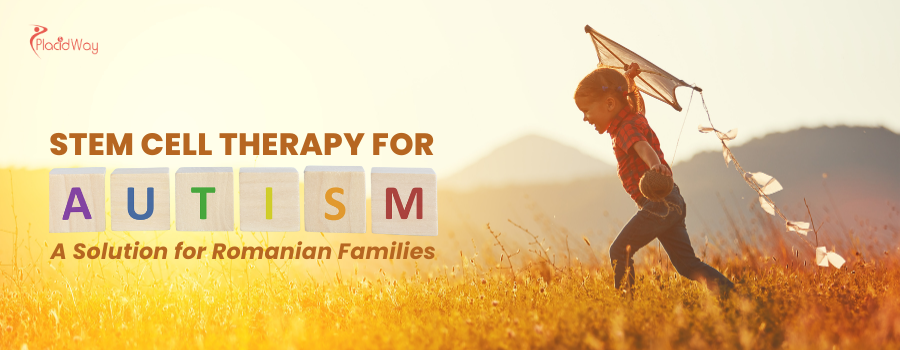


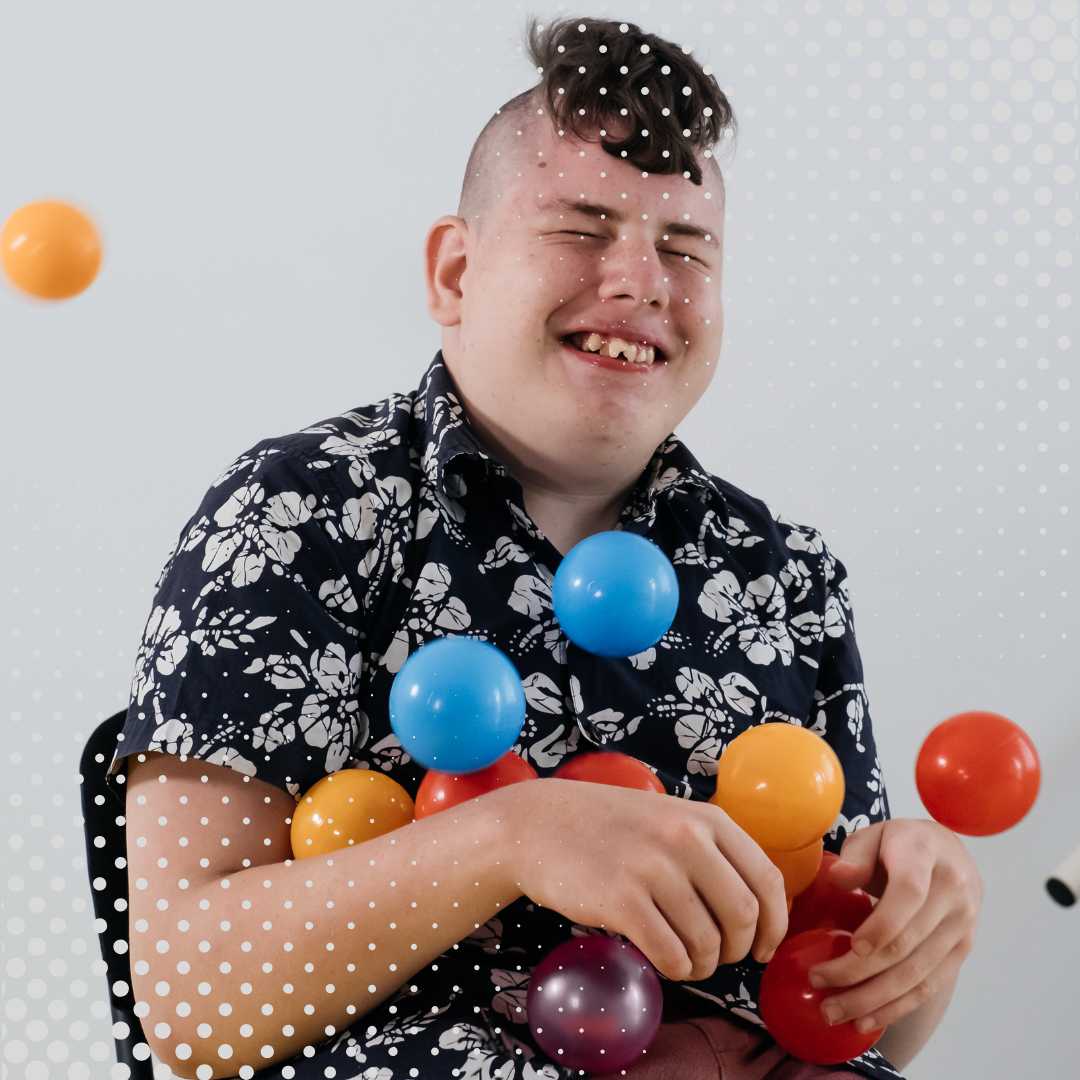

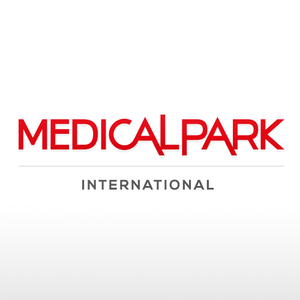
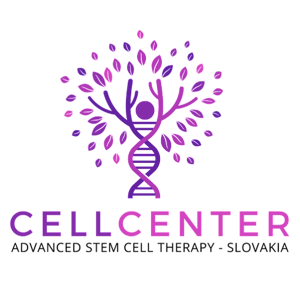
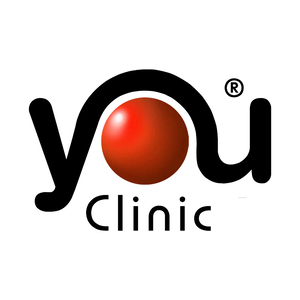





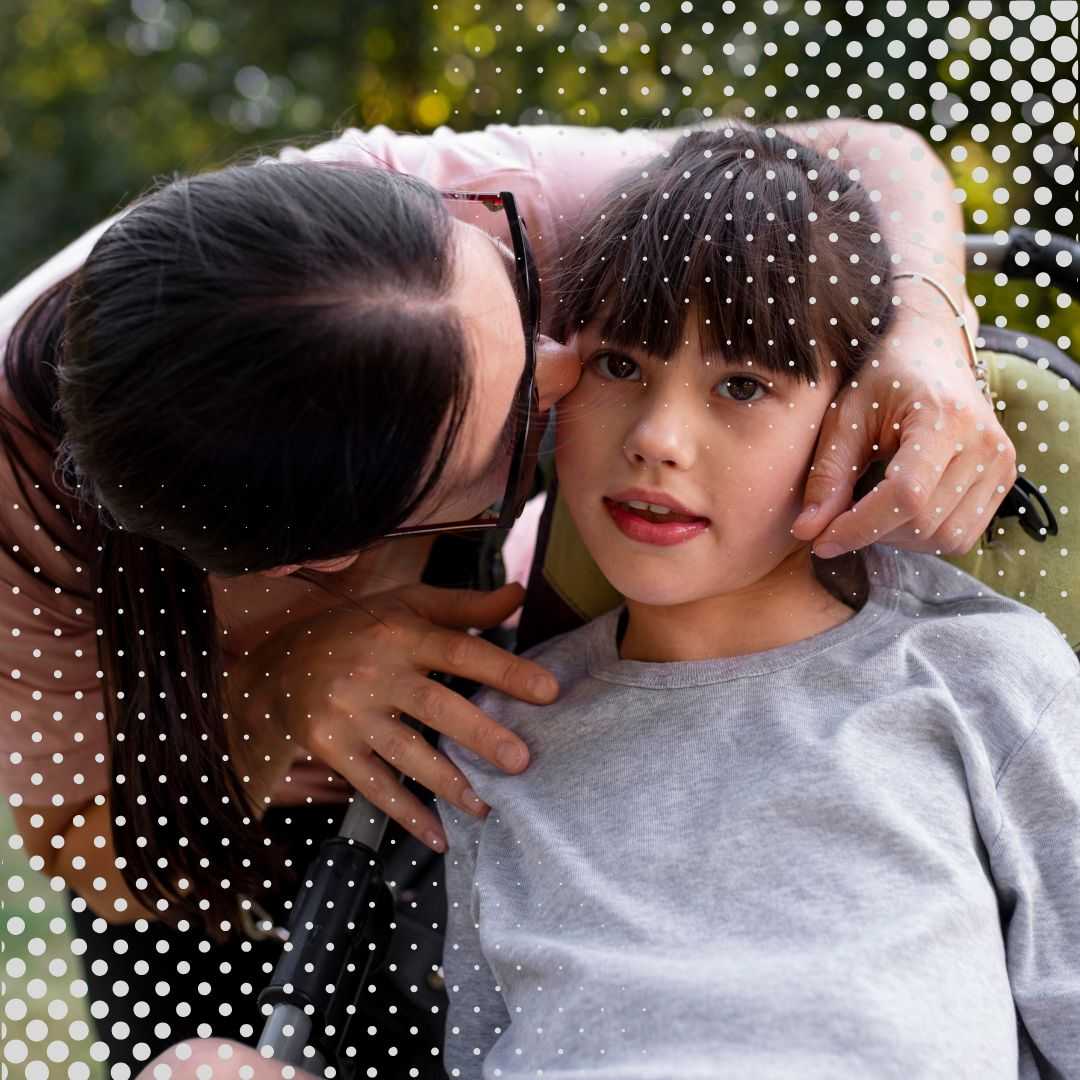

.png)
.png)
.png)

Share this listing